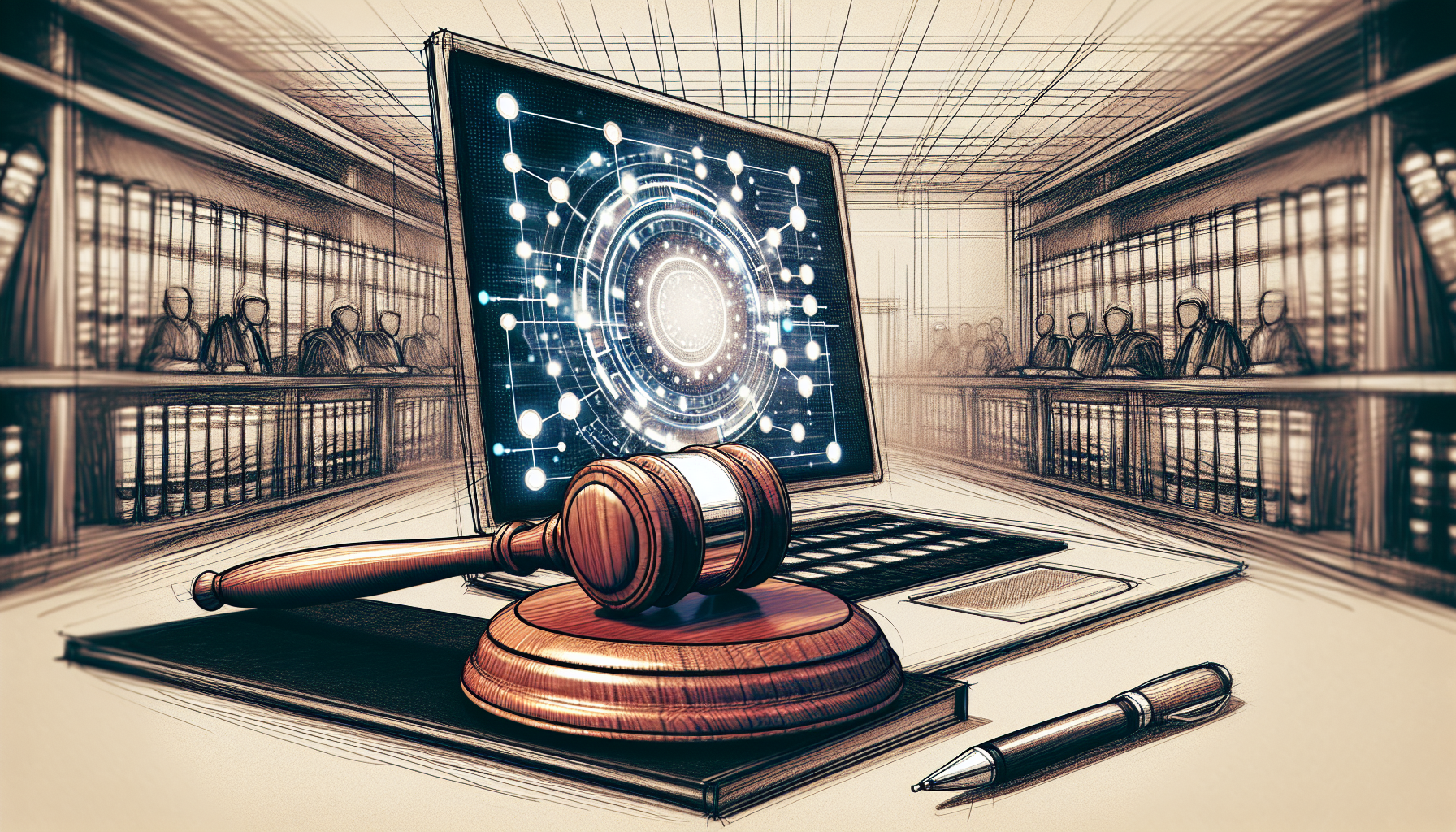
Setting the Stage: Enhancing Paralegal Efficiency in Family Law
Interjurisdictional family law cases add layers of complexity due to varying legal standards across different territories. Navigating such convoluted landscapes necessitates efficiency and precision. By integrating cutting-edge technologies such as ChatGPT, paralegals can exponentially increase their productivity while reducing the margin for error. The advent of advanced language models offers unprecedented assistance in managing intricate legal documentation and research, thus empowering paralegals to tackle interjurisdictional cases more effectively.
Mastering the Basics: Understanding ChatGPT and LLMs
ChatGPT, a product of OpenAI, exemplifies the capabilities of Large Language Models (LLMs). LLMs are essentially algorithms trained on vast datasets to understand and generate human-like text based on given inputs. These models excel in a wide range of applications—from generating creative content to summarizing complex information and even assisting in legal tasks.
In the legal domain, LLMs such as ChatGPT open new frontiers. They can sift through dense legal texts, identify pertinent case laws, and propose preliminary drafts of legal documents. By embedding these models into daily workflows, paralegals can benefit greatly, especially in sorting through the minutiae of interjurisdictional family laws. These advancements mitigate the manual labor involved in legal research and documentation, presenting paralegals with a powerful tool to enhance their operational effectiveness.
Also read:
The Power of Prompts: Crafting Effective Inputs for ChatGPT
The optimal use of ChatGPT revolves around the art of crafting precise and effective prompts. A well-formulated prompt can unlock the full potential of this technology, yielding responses that are both accurate and relevant.
Key Elements of a Good Prompt:
- Specificity: Detailed prompts yield more accurate and useful responses.
- Context: Providing background information enables the model to generate more coherent and relevant text.
- Clarity: Clear and unambiguous language ensures that the model can understand and respond appropriately.
Example Prompts for Interjurisdictional Family Law Cases:
- “Draft a petition for a child custody case involving parents residing in different states, taking into account the jurisdictional nuances of California and New York family laws.”
- “Summarize the procedural requirements for filing a divorce in multiple jurisdictions, focusing on residency requirements and statutory deadlines.”
- “Provide a comparative analysis of spousal support guidelines in Texas and Florida, highlighting key differences.”
Crafting prompts with these elements can significantly enhance the quality of outputs generated by ChatGPT, thereby streamlining various legal tasks.
Also read:
Streamlining Document Drafting: ChatGPT as a Paralegal’s Assistant
One of the most impactful ways to leverage ChatGPT is in drafting legal documents. Whether drafting petitions, affidavits, or briefs, ChatGPT can offer preliminary versions that paralegals can then refine and polish.
Steps to Utilize ChatGPT for Document Drafting:
- Initiate with a Clear Prompt: Start with a specific and detailed prompt to generate the initial draft. For example, “Draft an affidavit for a child custody case where the mother is requesting sole custody due to the father’s history of domestic violence.”
- Verify Outputs: Scrutinize ChatGPT’s output for accuracy and legal sufficiency. Cross-reference with jurisdiction-specific legal standards and precedents.
- Refine the Draft: Edit and modify the draft to ensure it complies with all procedural and substantive legal requirements.
Maintaining Accuracy and Consistency:
- Double-check Facts: Always ensure that factual information is verified and accurate.
- Legal Citations: Ensure that legal citations are precise and conform to local jurisdictional requirements.
- Consistent Terminology: Use consistent legal terminology throughout the document to maintain professionalism and coherence.
By following these steps, paralegals can maintain high standards of accuracy and professionalism while significantly expediting the document drafting process.
Also read:
Research Revolution: Efficient Case Law and Statute Searches
Effective legal research is pivotal in any family law practice, and ChatGPT offers valuable assistance in this domain. By generating prompt-based searches, paralegals can retrieve relevant case laws and statutory provisions swiftly.
Methods for Effective Legal Research with ChatGPT:
- Use Targeted Prompts: Specific prompts such as “Retrieve case laws related to child custody across different states” can yield focused results.
- Cross-Reference: Always validate ChatGPT’s output by cross-referencing with authenticated legal databases like Westlaw or LexisNexis.
Creative Prompts for Legal Research:
- “Provide a summary of landmark cases in family law that have influenced child support guidelines.”
- “Identify statutory provisions governing relocation and child custody in Illinois and compare them to those in Arizona.”
Incorporating these methods and prompts ensures that legal research is both comprehensive and accurate.
Also read:
Multijurisdictional Nuances: Tackling Diverse Legal Environments
Interjurisdictional cases often require an understanding of multiple legal frameworks, and ChatGPT can be instrumental in elucidating these differences.
Leveraging Prompts to Understand Legal Nuances:
- “Compare the child custody laws in New Jersey and Texas, focusing on joint custody arrangements.”
- “Summarize the procedural differences in filing for divorce in Nevada versus Pennsylvania.”
Using such prompts, paralegals can gain quick insights into the differing legal requirements and procedural nuances across jurisdictions.
Also read:
Enhancing Client Communication: ChatGPT in Client Interaction
Effective communication is vital in family law practice, and ChatGPT can assist in drafting well-articulated client emails and informed consent forms.
Best Practices for AI-Assisted Client Communication:
- Confidentiality: Always ensure client information is kept confidential when using AI tools.
- Review Outputs: Carefully review and refine AI-generated communications before sending.
- Professional Tone: Maintain a professional tone and clear language to foster trust and clarity.
By integrating ChatGPT into client communication, paralegals can enhance transparency and professionalism while saving time.
Also read:
Future-Proofing Your Practice: Continuous Learning and Adaptation
Remaining abreast of evolving AI technologies is crucial for future-proofing your practice. Commit to ongoing education and adaptability to leverage these advancements continuously.
Resources for Staying Updated:
- Webinars and Workshops: Participate in educational sessions focused on AI in law.
- Professional Journals: Subscribe to journals and magazines like The American Lawyer and ABA Journal.
By committing to continuous learning, legal professionals can stay ahead of technological trends, ensuring their practice remains cutting-edge.


